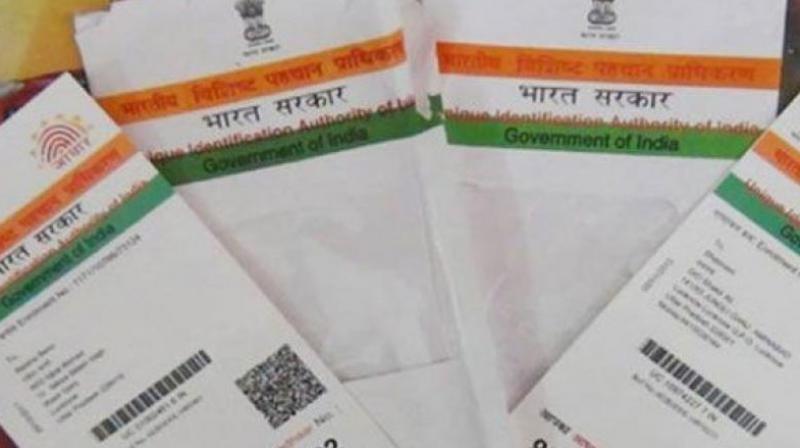Aadhar information 'gold mine': SC concerned over data sharing for commercial gain
SC observed that in absence of robust data protection law it is very difficult to stop information surveillance and sharing of information.

New Delhi: The Supreme Court on Thursday expressed serious concern over the magnitude of “information surveillance” and said gold mine of information and Aadhaar data of 1.3 billion people are available for commercial purposes.
In the absence of a robust data protection law it is very difficult to stop such surveillance and sharing of information particularly by the data collecting and authentication entities, the court orally observed.
The court said, “When we mean surveillance it is not real or physical surveillance but commercial surveillance.”
A constitution bench of the Chief Justice Dipak Misra and Justices AK Sikri, AM Khanwilkar, DY Chandrachud and Ashok Bhushan is hearing a batch of petitions challenging the legal validity of Aadhaar law.
When senior counsel Rakesh Diwedi, appearing for UIDAI and Gujarat government was explaining the rationale of collecting Aadhaar data, Justice Chandrachud quipped, “We are now in an area of information surveillance.”
“The amount of commercial surveillance going on in this country is enormous. Today we stand on a weal track. We don’t have a data protection law. You are in the process of enacting such a law.”
Justice Chandrachud said, “Today commercial information of Aadhaar data which the requesting/authenticating entitles collect is itself a gold mine available for commercial purposes. Even little things we disclose for Aadhaar are available. Take the instance of Cambridge Analytica. The Facebook CEO Zuckerberg has given a statement before US Congress as to how people’s data is shared.”
However, counsel Diwedi dispelled the apprehension that the data is being shared by the collecting entities and said these information cannot be shared.
Justice Chandrachud pointed out that the law says information can be further shared on prior consent. People invariably give this consent, which is in the form of a contract. He wondered as to how the government could prevent data from being shared when there is no mechanism to oversee the consent.
Counsel said individual data by itself has no value, unless the data of all the persons are aggregated.
Justice Chandrachud observed, “Today all information in Whatsapp or Facebook are commercially sensitive. Why should somebody intrude on my privacy and keep a tap over your conversation when I share a message with my wife. Our concern is it will affect a vast number of populations and the future generation and how are we going to lay down a law.”
The judge went on to observe, “The concern is not about finger prints. Giving fingerprints for entry into the courtroom or getting access to something is per se not wrong. In South Africa even Judges have to give their fingerprints before they enter the court hall. The problem arises when fingerprints become a means of data for storing and authentication. Then it is liable for sharing by the collecting entities.”
The CJI asked Diwedi to inform on April 17 as to how the Aadaar data will be protected and there is no sharing of information as mentioned by the UIDAI CEO.

